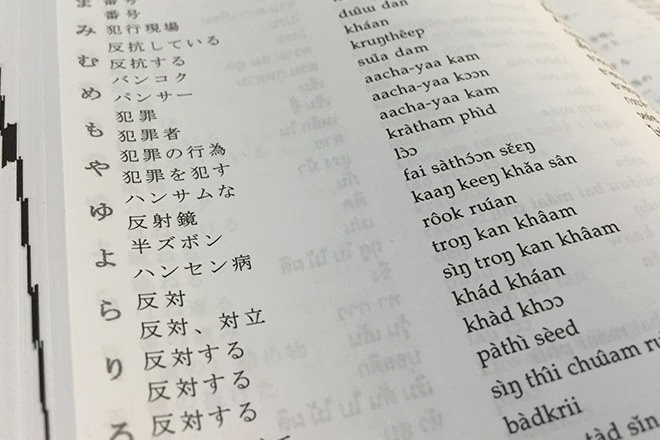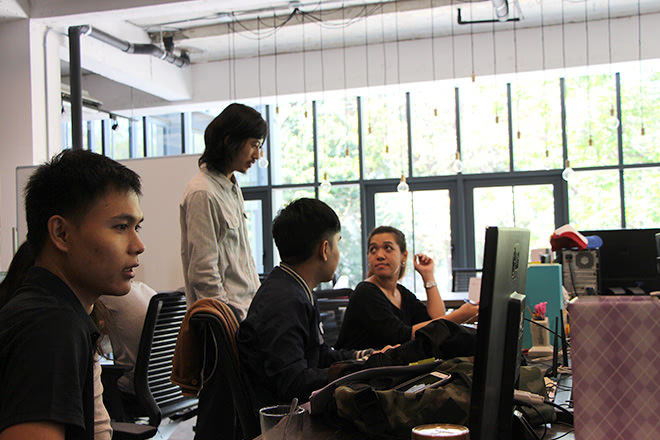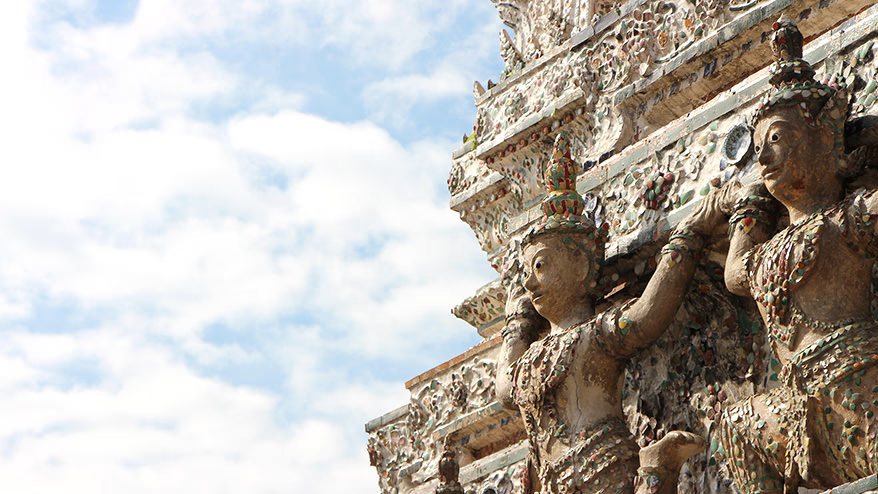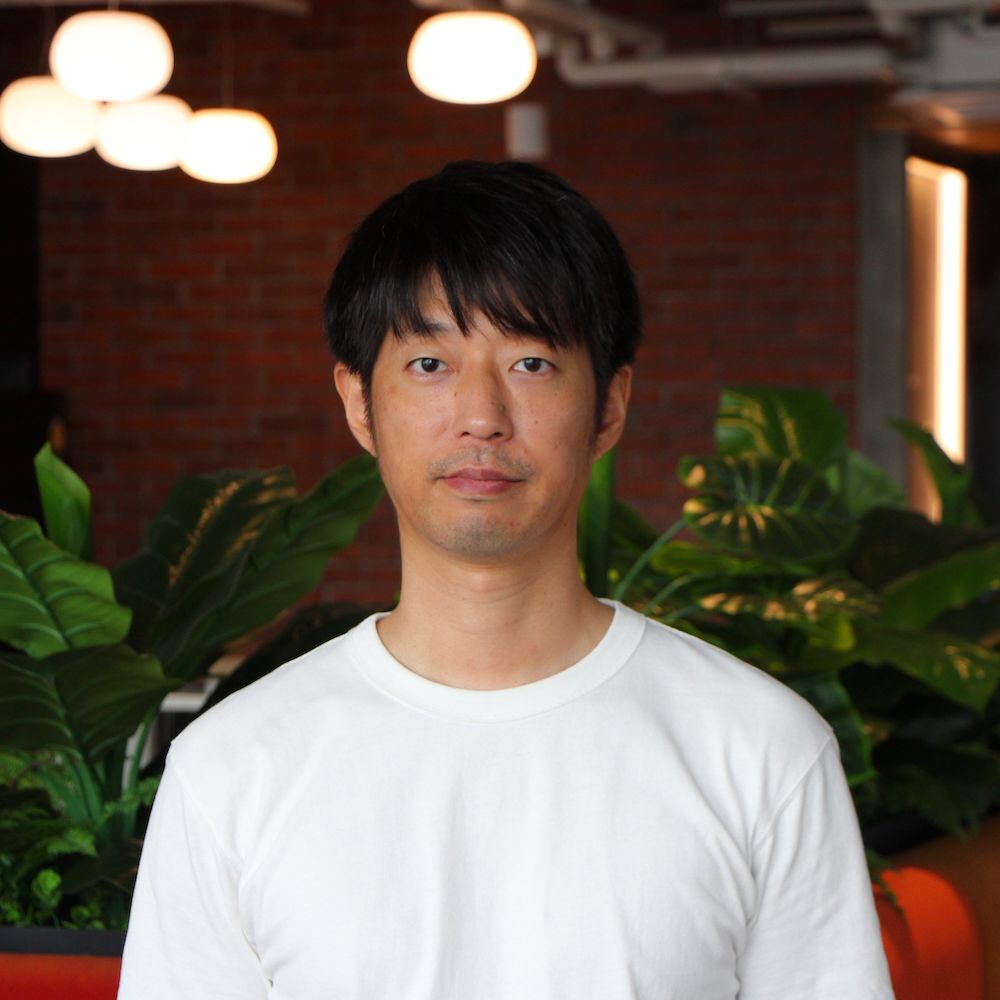This is Miyagawa from Monosus Thailand.
In Japan, it's the season when hay fever is a big problem, but it's already summer in Thailand. As we approach April, the hottest month of the year, temperatures have been approaching 35 degrees Celsius. Then, two months ago, Thailand was hit by a severe cold wave, and in the north, some people even died from the cold. It was certainly chilly while I was working, but I was surprised to notice that the heating was on. I was wearing short sleeves and still had the heating on...
Now that I live in Thailand, misunderstandings and miscommunications often occur in my daily life due to cultural differences. Today, I would like to introduce some of the differences in thinking and values between Thailand and Japan.
Differences in perception of time
I often hear that Thai people are not punctual, but I felt this most strongly when it came to hiring. It is very common for applicants to be a little late or not show up for interviews at all.
However, what surprised me was that there were people who showed up 30 minutes, an hour, or even three hours before. Even though they hadn't made a mistake with the time.
That was quite a shock to me, but when I looked into the origin of this very vague sense of time, I found that one reason was that they were originally an agricultural people. Agricultural people get up when the sun rises, go to work, and return home when the sun sets, so they don't have to worry about time.
If that's the case, then aren't Japanese people originally the same? However, from the teachings of "Zen and Confucianism" that were introduced to Japan during the Muromachi period, the idea of "not causing trouble to others," the culture of "shame" and "self-reflection," and the idea of "valuing others above yourself" became ingrained and became the basis of the Japanese way of thinking.
Furthermore, it is said that the sense of time in Japan has changed significantly from other countries due to modernization since the Meiji era, recovery from wars and natural disasters, and rapid economic growth.
The Japanese sense of time, which is often ridiculed as being "strict about starting times but loose about finishing times," may also seem humorous to Thai people.
The meaning of the word Maipenrai
In Thai there is a word "mai pen rai" which means "it's nothing," "it's okay," "it doesn't matter," "you're welcome," "peace and quiet," etc.
The other day, I heard a story from a Japanese friend of mine who was rear-ended while driving in Thailand, and instead of apologizing to the Thai perpetrator, was called "mai pen rai," which made him very angry.
I have heard that there is no word for "reflection" in Thai. I wondered if that was true, and when I looked it up in the dictionary, it really wasn't there.

Shorts... Hanse... Hansen's disease. There is no remorse. (Source: Takahashi Eba, "Japanese-Thai Dictionary: Japanese-Pronunciation-Thai", 2009, Meteve Phuket Co., Ltd.)
However, when I asked a Thai friend about it, he got angry and said, "Of course not." So, I wonder why Japanese people have come to think like this, but it seems that there are concepts and words to reflect on.
Mai pen rai is uttered by the perpetrator after a rear-end collision, but in fact, this phrase seems to be intended to reassure both the other person and himself.
Thai people, many of whom are Buddhist, are said to be kind-hearted. As a national trait, they prefer "peace" and dislike "change" or "abnormal conditions." Mai Pen Rai is a phrase that is frequently used as a greeting to confirm this. It is also used to show kindness and concern for the other person when something happens, to say "It's okay," "Don't worry," or "There's no need to worry."
However, in most cases, it is the party that is rear-ended who says mai pen rai, and in Thailand there are many cases where the driver is forgiven without paying any compensation.
Being a nuisance: A form of kindness
I heard from Thai people that "Japanese people place importance on not causing trouble to others, but they don't try to help others either. In contrast, Thai people are indifferent to causing trouble to others, but will quickly help those around them if they are in trouble." and "They are just as kind as the Japanese."
It is true that in Thailand, people don't make a fuss even if a baby cries, people give up their seats to children on the train, and all the men have a gentlemanly disposition.
Even in the office, if someone is in trouble, we naturally help each other out and we often see people staying behind together. If someone gets sick, everyone is so concerned about them that they even buy medicine for them.
Of course, there are certain ways of thinking behind each culture, but I thought it was a good thing that people were expected to cause each other trouble.
The path to mutual understanding
It is impossible to write everything in this article, but once I learned a little about the Thai national character and the thinking behind their everyday words and actions, I found it very interesting and understood some things.
At the same time, it is also an opportunity to become aware of the uniqueness of my own way of thinking as a Japanese person.

Thai people have their own values, and Japanese people have their own values. There are clear differences, and while there are cultures that we each like, there are also parts that we cannot get used to. How to deal with these differences in values is an ongoing challenge, but I think the key to success lies in making an effort to understand each other and respecting each other, without clinging to our own sense of justice.

